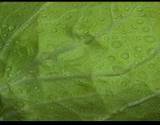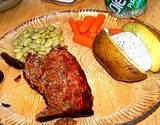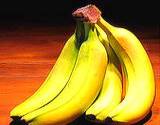|
Grandma's Vitamin B6 and
|
Pyridoxine or Vitamin B6 is involved in more bodily functions than almost any other single nutrient. It affects both physical and mental health. It is beneficial if you suffer from water retention, and is necessary for the production of hydrochloric acid and the absorption of fats and protein.
Pyridoxine also aids in maintaining sodium and potassium balance, and promotes red blood cell formation. It is required by the nervous system, and is needed for normal brain function and for the synthesis of the nucleic acid RNA and DNA, which contain the genetic instructions for the reproduction of all cells and for normal cellular growth. It activates many enzymes and aids in the absorption of Vitamin B12, in the immune system functions, and in antibody production.
Pyridoxine plays a role in cancer immunity and aids in the prevention of arteriosclerosis. It inhibits the formation of toxin chemical called homocysteine, which attacks the heart muscle and allows the deposition of cholesterol around the heart muscle. Pyridoxine acts as a mile diuretic, reducing the symptoms of premenstrual syndrome, and it may be useful in preventing oxalate kidney stones as well. It is helpful in the treatment of allergies, arthritis, and asthma.
A deficiency of Vitamin B6 may be recognized by:
- anemia
- convulsions
- headaches
- nausea
- flaky skin
- a sore tongue
- vomiting
Other possible signs of deficiency include:
- acne
- anorexia
- arthritis
- conjunctivitis
- cracks or sores in the mouth and lips
- depression
- dizziness
- fatigue
- hyperirritability
- impaired wound healing
- inflammation of the mouth and gums
- learning difficulties
- weak memory
- hair loss
- hearing problems
- numbness
- oil facial skin
- stunted growth
- tingling sensations
- carpal tunnel
 |  |  |
Natural Food and Herbal Sources of
Vitamin B6 Pyridoxine
All foods contain some Vitamin B6, however, the following foods have the highest amounts:
- brewer's yeast
- carrots
- chicken
- eggs
- fish
- meat
- peas
- spinach
- sunflower seeds
- walnuts
- wheat germ
Other sources include
- avocado
- bananas
- beans
- blackstrap molasses
- broccoli
- brown rice and other whole grains
- cabbage
- cantaloupes
- corn
- dulse
- plantains
- potatoes
- rice bran
- soybeans
Herbs that contain Pyridoxine include:
- alfalfa
- catnip
- oat straw
Comments:
Antidepressants, estrogen therapy, and oral contraceptives may increase the need for Vitamin B6. Diuretics and cortisone drugs block the absorption of this vitamin by the body.
Return from Vitamin B6 Pyridoxine to Grandma's Vitamin List Guide
Return to Grandma's Herbal Remedies Guide





